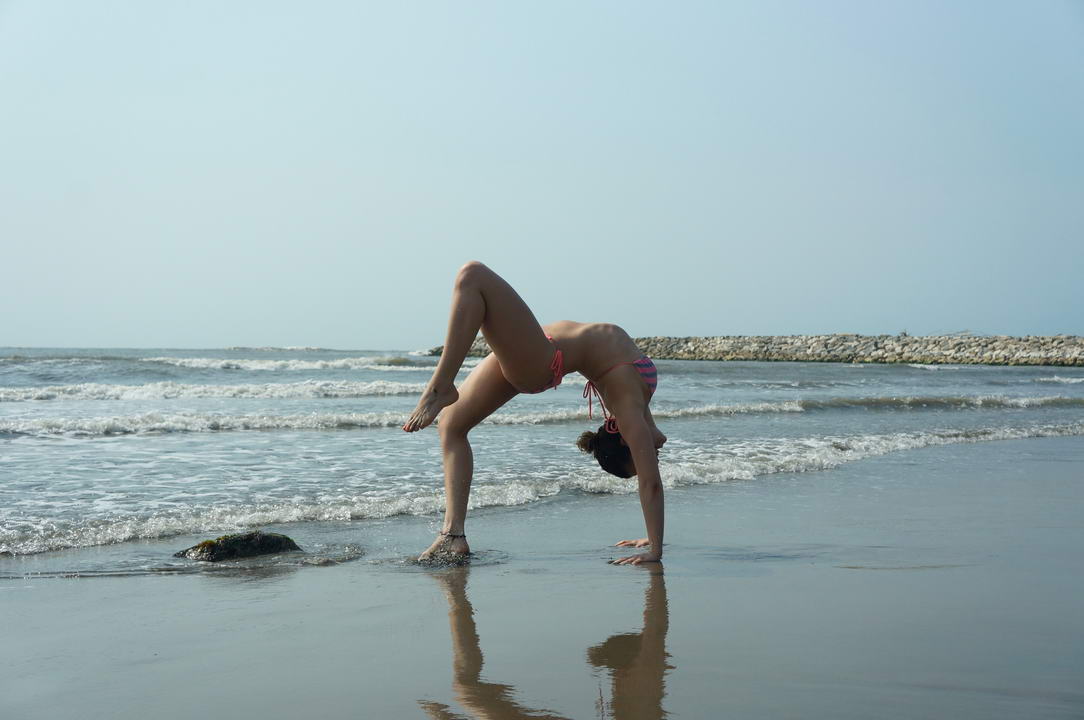Yoga, more than just a physical exercise, is a comprehensive system of holistic well-being that encompasses the mind, body, and spirit. At the heart of yogic philosophy lies the Eight Limbs of Yoga, a guiding framework that outlines a path towards self-discovery, inner peace, and spiritual enlightenment. Rooted in the ancient sage Patanjali‘s Yoga Sutras, these eight limbs offer a comprehensive approach to leading a balanced and purposeful life. Let’s explore each limb and its significance in the journey of self-realization.
Explore Meditation Retreats & Wellness Retreats
Explore Yoga Retreats with Tejomaia.com

Yama: Ethical Principles The first limb, Yama, focuses on ethical principles and moral conduct. It guides practitioners to live in harmony with others and the world around them. The five Yamas are Ahimsa (non-violence), Satya (truthfulness), Asteya (non-stealing), Brahmacharya (moderation), and Aparigraha (non-possessiveness). Practicing Yama fosters a compassionate and responsible way of interacting with the world.
Niyama: Self-Discipline Niyama directs individuals towards self-discipline and inner observance. The five Niyamas are Saucha (cleanliness), Santosha (contentment), Tapas (self-discipline), Svadhyaya (self-study), and Ishvara Pranidhana (surrender to a higher power). By cultivating self-awareness and practicing self-care, Niyama supports personal growth and spiritual development.
Asana: Physical Postures Asana, the physical practice of yoga postures, is what most people commonly associate with yoga. The practice of Asana promotes physical health, flexibility, and vitality. Beyond the physical benefits, Asana also prepares the body for meditation, helping practitioners find comfort and stability for the inner journey.
Pranayama: Breath Control Pranayama involves the control and regulation of breath. This practice enhances the flow of Prana (life force energy) within the body, promoting overall well-being and mental clarity. Pranayama techniques are essential for calming the mind and preparing for deeper states of meditation.
Pratyahara: Withdrawal of the Senses Pratyahara is the practice of withdrawing the senses from external distractions. By turning the focus inward, practitioners learn to detach from sensory experiences and gain mastery over their reactions. Pratyahara paves the way for concentration and meditation by quieting the mind’s tendency to wander.
Dharana: Concentration Dharana involves cultivating focused concentration on a single point, object, or mantra. This unwavering attention prepares the mind for deeper levels of meditation. Through Dharana, practitioners develop the ability to direct their thoughts and achieve mental clarity.
Dhyana: Meditation Dhyana is the practice of meditation, characterized by uninterrupted and contemplative awareness. It involves a state of mindfulness and deep absorption, allowing practitioners to transcend the boundaries of the ego and experience inner stillness and insight.
Samadhi: Union and Enlightenment The final limb, Samadhi, represents the ultimate goal of yoga – a state of profound union with the divine and complete self-realization. It is a state of pure consciousness where the individual ego dissolves, and a sense of oneness is experienced. Samadhi is the culmination of the yogic journey, marking the attainment of spiritual enlightenment.
The Eight Limbs of Yoga provide a holistic framework for leading a purposeful and balanced life. From ethical conduct and self-discipline to physical postures and meditation, each limb supports the cultivation of self-awareness, inner peace, and spiritual growth. As practitioners navigate through these limbs, they embark on a transformative journey that leads to a deeper understanding of themselves and their place in the world. Through the Eight Limbs of Yoga, individuals can embark on a path of self-realization, transcending limitations and discovering the boundless potential that resides within.
Explore Meditation Retreats & Wellness Retreats
Explore Yoga Retreats with Tejomaia.com



You must be logged in to post a comment.